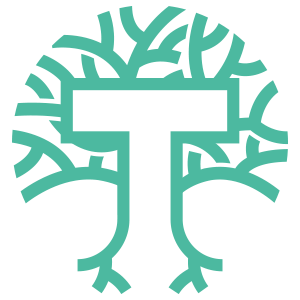What is Qigong?
‘Qi’, pronounced chee, is a Chinese word for ‘energy’ or a person’s energy level. In western culture low energy/Qi is fatigue. If you’re tired your Qi is low. If you’re ill your Qi is even lower and if you’re very ill your Qi is very low.
‘Gong’ means ‘work’ - a skill honed over time. Qigong students work on gentle, flowing exercises that aim for relaxation, fluid movement, balance, better posture and more.
With good, regular practice with a qualified teacher (‘sifu’, pronounced seefu), who instructs a skill with a strong lineage and culture, students work towards improving their energy, lifestyle, health and overall quality of life. Kunlun Dayan Qigong is a skill with strong lineage and culture. Read more about our style of Qigong below.
Scroll down to read more about what to expect in class.
Qigong can help you:
- Get active
- Reduce pain
- Feel relaxed yet energetic
- Learn to still your mind
- Manage stress
- Release tension
- Improve your body and balance
- Sleep better
- Reduce fall risk and joint instability
- Lower blood pressure
- and more...
Kunlun Dayan Qigong uses movement, acupressure points and meridians to clear stiff/dysfunctional areas and to develop mobility, coordination, relaxation, balance and flexibility. Practitioners find that regular practice of these movements help them to feel better, reduce illnesses and live longer, with ease.
'It’s amazing how much qigong switches my brain off, no matter how busy it is'
Scroll down to read more about Qigong.

What to expect in class
- Arrive early and enjoy a cup of Chinese tea, meet other students and prepare, before class starts.
- First time attendees will go through a registration process, so please contact Kay.
- Dayan Qigong skill is part of an ancient lineage that's taught in a traditional, Chinese way, developing your individual skill at your pace.
- Wear comfortable clothes and shoes, and appropriate clothing and supplies for when class is outdoors.
- Parking and cycle racks are available; changing facilities are only available when venues are not closed due to Covid19.
- After warm up and a form demonstration, you'll be taught traditional skills, often individually and at your own level.
- Movements are primarily gentle and/or dynamic and on your feet.
- You might practice on your own or with others in class.
- Kay has been with the Tse Qigong Centre for over ten years and is one of their 30 Authorised Instructors teaching worldwide. She has been training in various martial arts since 1998.
Class locations and times are on the class poster. Weekly classes continued throughout COVID-19 pandemic. Please use the contact form if you're new to Telos and interested in services.
Staying healthy, active and well during is even more important than ever. Kay will be there in every way she can within professional and government guidelines, adapting her services to meet your changing circumstances.
Traditional Skills
Our style of Qigong is named after the Himalayan mountain and the bar headed geese where the skill was founded. The geese inspired Buddhist monk Wei Dao An and other monks who noted their ability to ascend to the highest altitudes, travel long distances and live the longest.
Wei Dao An transformed monk teachings into movements, imitating these geese. This is the founding of our traditional skill.
Kunlun Dayan Qigong has been passed down from Master to student for over 1,800 years. Until the 1980's, Dayan Qigong was taught to one student per generation. The skill was kept secret by the one student until their 70th birthday, then they were allowed to pass it on to the next student.
My Great Grand Teacher, Grandmaster Yang Meijun, lived to 104 and practiced Qigong in China even as a centenarian. She is internationally renowned as one of the greatest Qigong grandmasters of the 20th century. She passed away in 2002 - the sole inheritor of the Kunlun Dayan System of Qigong for the 27th generation.
Thankfully, Grandmaster Yang invited a specially chosen student, Master Michael Tse to teach the skill; she didn’t want the skill lost as a result of the Chinese Cultural Revolution. Sigong Tse teaches students all over the world, including my Sifu Mike Baker who started over 25 years ago.
Kay is honoured to be invited to teach this skill to Cambridge students. Students are expected to respect the ancient lineage of teachers by following traditional customs inside and outside of class, including referring to their teacher as 'Sifu' and referring to other lineage teachers in the Dayan system in the traditional way.



